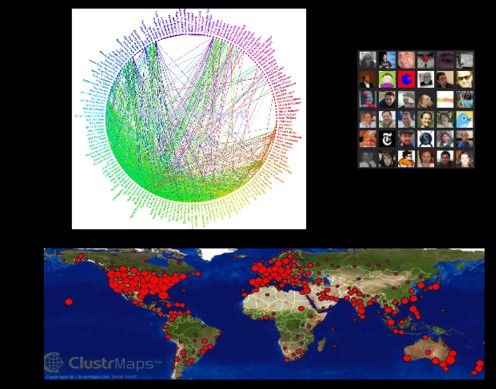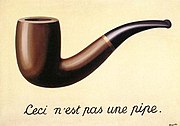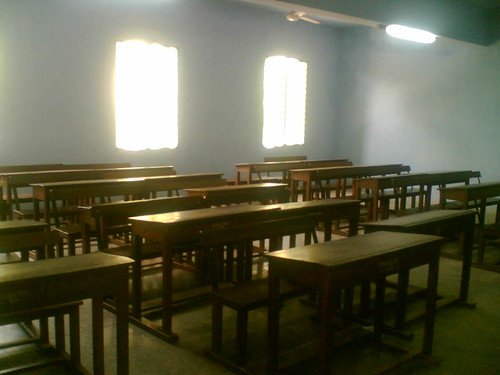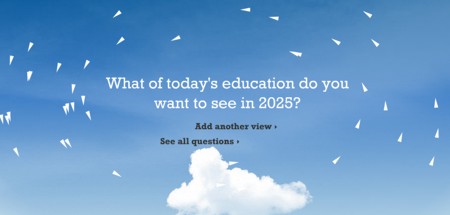
Will Richardson’s networks
I’m guessing there will be several blog posts about the SLAV conference, Perspectives on learning V2 today. I have considered whether to leave it to others, but a post always deconstructs my own thinking, and creates an archive for later reference.
Will Richardson was the keynote speaker, and he spoke about Network literacy: leveraging the potential of a hyperconnected world. There were concurrent sessions by Jenny Luca (Now you know Web 2.0, what next?), Adrian Camm (Why create a virtual learning community), and John Pearce (Projecting passionately with Web 2.0). The Plenary session was presented by Kerry Rowett and Judith Way (Web 2.0 and resources for you), who write the SLAV blog, Bright ideas.
SLAV is to be congratulated on providing cutting edge professional development, and also on providing links to the presentations on their Bright Ideas blog.
What I’m not going to do is summarise the talks. The slide presentations will give clues, and the podcasts to follow will provide the detail. What I’m going to do is pull out of Will’s keynote speech some of the main points that resonated with me.
Firstly, anyone who has read Will’s blog or looked through his Delicious tags, will know that network literacy is a leitmotif throughout his writings. If you compare the idea of network literacy with our traditional concept of literacy (at its most basic, reading and writing), then you have an idea of how Will stretches the idea of literacy, and also where his focus is. The hyperconnected world he speaks of is a connectedness which is made possible by technology, but which is not focused on technology itself, but on a connectedness with people and people networks. And these networks are the source of information for Will. He doesn’t Google when he needs information, he goes to his Twitter or Delicious communities. When he wants to know what ‘s going on in the world, he doesn’t just read newspapers, he prefers to go to his personally designed sources in his Google Reader (RSS feeds), or to his favourite bloggers when he wants deep conversation. He connects with people who share his passions, with experts far and wide, and he urges us to do the same.
And so we shouldn’t be surprised when Will speaks of schools as places which need to change. He quotes Clay Shirky (Here comes everybody) who says we have to get outside of our physical spaces which define our schools and learning, and connect with people and networks globally. He reminds us that our students have already made it out to networked activity through social media sites like Facebook and MySpace. He pre-empts our concerns that Facebook is trivial and uneducational by pointing out that kids are already moving beyond the superficial and using social media to form interest-based groups, where their interaction is based purely on passion and transcends physical space, time zones and cultures. We are impressed when we realise that these experiences place kids in a position of being teachers as well as learners. We really get the point when we hear that this all happens outside of school, when it hits home that self-organised learning and teaching activities driven by pure passion are taking place outside of our learning institutions. While we have the problem of increasing disengagement in our classes. The point hits home with some discomfort.
Here are some points that came out of Will’s talk:
- learning is an ongoing process, not something that fits neatly within a measured time frame
- blogging allows us to rethink what it means to read and write; it becomes a connection, a conversation with an authentic audience
- literacy is malleable and will evolve further in the next few years
- multimedia texts expand literacy to include critical thinking and analysis
- we need to create and navigate our own personal learning network, and teach our students to do the same
- network literacy cannot be taught as a one-off course
- we need to help our kids create a digital footprint, so that they have positive results when googled
Listen to the podcast when it comes onto the SLAV website for the rest of the talk.
Jenny Luca’s talk was a passionate account detailing her journey from Web 2.0 to making a difference to the lives of many people with the help of individuals and communities around the world. Amongst other projects, she spoke about Working together to make a difference which she is most proud of, since it is testimony to the best of people’s collabortive efforts.
I could go on; all the talks I attended were extremely interesting and relevant to educators. It’s the kind of resource and ideas list that could keep you going for a very long time. I’m already using most of the Web 2.o tools and applications that were mentioned, but I’m trying to integrate them into relevant and creative learning and teaching. What I have learned from hearing people like Will and Jenny speak, has not centred on new tools, but shifted me into a different direction, provided me with a new perspective.
What I’d love to find out now is how the audience received these talks, how people felt, what they thought, what resolutions, if any, did they make as they walked out of that conference. Did it make a difference? Please leave your honest comments here, and perhaps we can have a conversation. Did the talks effect a shift in your perspective and teaching direction, or did it just make you shift uncomfortably in your seat?







